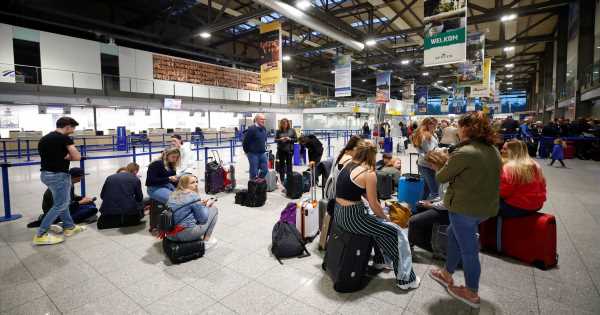Since the Brexit rules were implemented last year, Brits have been limited in the amount of time they can spend in EU countries.
The new rules were brought in at the height of the pandemic meaning many Brits may not have even noticed as traveling abroad was restricted anyway due to Covid-19.
Now that travel restrictions have largely been lifted across the UK and Europe, it will be the first time many Brits will be going abroad since the Brexit travel rules were implemented.
Those who might be planning an extended stay in Europe or multiple trips over a 180-day period may discover the harsh new reality of the 90-day restriction the hard way. However, there are loopholes allowing Brits to dodge this rule without accumulating fines along the way.
Working Holiday Visas
One way is to get a working holiday visa, which allows UK nationals who are between the ages of 25 and 31 to stay in a country for up to 12 months.
During the course of their stay, Brits will be allowed to legally work in the country they are in to cover their living expenses. On that note, it might be best to check the rules surrounding these visas for the country you plan to visit, as they can vary between EU member states.
Citizenship
If you’re a regular traveller to Europe and the 90-day limit is too restrictive for you, you could consider applying for the citizenship of an EU country.
Perhaps you have personal or business ties to an EU country that will boost your chances of being accepted as a citizen, or maybe you have an ancestral claim that, if proven, could also present you that opportunity.
Many Brits can trace their origins back to places like Ireland, Germany, France, Belgium, the Netherlands, Spain, Italy, Poland, Hungary, Sweden, Denmark and Greece, all of which are EU countries. This is easier to trace for Brits of mixed heritage or descendents of migrant families.
Countries like Spain are even running initiatives to grant citizenship to the descendants of Sephardic Jews who were exiled from the country hundreds of years ago, so the further back you can go in your family tree, the higher your chances.
Golden Visas
Although the concept of ‘golden visas’ has come under heavy scrutiny as of late, some EU member states are pretty much allowing wealthy foreigners to buy their way into the bloc.
Spain, Portugal, Greece, Italy, Malta, Austria, Belgium, Germany, Bulgaria and Ireland are all running schemes to allow non-EU nationals who purchase an expensive home or make large investments in their countries to gain residence permits or citizenship for them and their families.
This scheme has been taken advantage of in the past by wealthy oligarchs from countries like Russia and China to funnel their ‘black money’ into the EU and gain influence over policies in member states.
Each country will have its own rules about how to apply for a golden visa, and what criteria you need to meet to get one. Due to the problems that have been caused in the past, however, you can expect checks on your eligibility to be quite rigorous.
Freelance Visa
One quick fix solution to gaining EU residency is to apply for a freelance visa, which will allow you to stay in the EU for up to three months.
This visa is more relevant to people who are writers, artists and digital nomads, but once this visa is obtained, one can apply for a three-year residency to remain in the country they are staying in.
Source: Read Full Article
